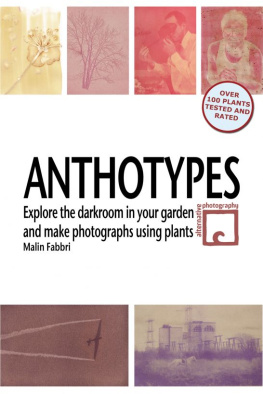Robert Fabbri - Tribune of Rome
Here you can read online Robert Fabbri - Tribune of Rome full text of the book (entire story) in english for free. Download pdf and epub, get meaning, cover and reviews about this ebook. genre: Adventure. Description of the work, (preface) as well as reviews are available. Best literature library LitArk.com created for fans of good reading and offers a wide selection of genres:
Romance novel
Science fiction
Adventure
Detective
Science
History
Home and family
Prose
Art
Politics
Computer
Non-fiction
Religion
Business
Children
Humor
Choose a favorite category and find really read worthwhile books. Enjoy immersion in the world of imagination, feel the emotions of the characters or learn something new for yourself, make an fascinating discovery.

- Book:Tribune of Rome
- Author:
- Genre:
- Rating:4 / 5
- Favourites:Add to favourites
- Your mark:
- 80
- 1
- 2
- 3
- 4
- 5
Tribune of Rome: summary, description and annotation
We offer to read an annotation, description, summary or preface (depends on what the author of the book "Tribune of Rome" wrote himself). If you haven't found the necessary information about the book — write in the comments, we will try to find it.
Tribune of Rome — read online for free the complete book (whole text) full work
Below is the text of the book, divided by pages. System saving the place of the last page read, allows you to conveniently read the book "Tribune of Rome" online for free, without having to search again every time where you left off. Put a bookmark, and you can go to the page where you finished reading at any time.
Font size:
Interval:
Bookmark:
Tribune of Rome
Robert Fabbri
PROLOGUE
With the good help of the Gods may success crown our work. I bid thee, Father Mars, to take care to purify my farm, my land and my family, in whatever way thou thinkest best.
Titus Flavius Sabinus held his palms up to the sky in supplication to his familys guardian god whilst reciting this ancient prayer. A fold of his pure white toga was pulled over his head in deference to the deity whose favour he invoked. Around him stood all his dependants: his wife, Vespasia Polla, held their newborn son; next to her was his mother, then his elder son, soon to be five. Behind them were his freedmen and -women, and then finally his slaves. They were gathered around the boundary stone at the most northerly point of his estate in the pine-resin-scented hills of the Apennines.
Titus finished the prayer and lowered his hands. His elder son, also named Titus Flavius Sabinus, stepped up to the stone and beat it four times with an olive branch. This done, the solemn procession around the perimeter of Titus land was complete and they started back towards the familys homestead.
It had taken over eight hours since dawn to complete the circuit and, as far as the young Sabinus could tell, nothing untoward had happened. His father had said the right prayer at each corner of the estate; there had been no ill-omened flights of birds; no lightning had come from the cold, clear, late-November sky; and the sacrificial ox, pig and ram had all followed placidly.
Sabinus led the ram; its horns were decorated with brightly coloured ribbons and its dull eyes looked around for what would be, unbeknownst to it, its last glimpses of the world.
The rams imminent death would have caused Sabinus no concern in normal circumstances. He had seen animals sacrificed or butchered many times and had even helped Pallo, the stewards son, to wring the necks of chickens. Death was a natural part of life. Yet he wanted to prevent this death since through it a new life, the life of his infant brother, would be purified. He wished that he could disrupt this ceremony, which was now nearing its climax, but he knew that to do so would bring down upon him the anger of the gods, and he feared them as much as he hated his new sibling. On the day of his brothers birth, just nine days earlier, Sabinus had overheard his grandmother, Tertulla, bring the news to his father that an oak tree sacred to Mars, which grew upon the estate, had sprouted a shoot so thick that it seemed that another tree had appeared, not just a branch. When his sister had been born it had sent out only a short, thin, sickly shoot that had withered and died quickly as had she. In his case the shoot had been long and healthy, promising a good fortune, but that was nothing compared to what this omen presaged for his brother. He heard Father shout his thanks to Mars for such a child, and promise his best ox, pig and ram for the lustration ceremony of purification where he would officially recognise the boy as his son and give him a name.
Ill nurture this one with great care, Mother, Titus said, kissing her on the cheek. This boy is destined to go far.
Tertulla roared with laughter. Youre going senile before I do, Titus. With the Republic dead and the Empire ruled by one man how far can a child from a family of equestrian farmers from the hills be allowed to go?
You can laugh as much as you like, Mother, but if an omen points to greatness it is the will of the gods and not even the Emperor has the power to deny them.
Since hearing that exchange he had been on the verge of tears every time he had seen his mother holding his brother. For nearly five years he had felt the exclusive love and protection of his family, but now someone who was to share that love would be favoured over him.
He steeled himself as they finally neared the house; he knew that he had to play his part in this ceremony with the dignity befitting the Flavii, the ancient Sabine family into which he had been born. He would not disappoint his father Titus.
The procession entered the stable yard and assembled at the far end before a stone altar dedicated to Mars, upon which lay a pile of oil-soaked wood. To the right of it stood a flaming torch in an iron holder; to the left, on a wooden table, were placed an axe and a knife.
Sabinus made sure that the ram was standing waiting on his right-hand side, in the way that he had been shown, and then looked around at the gathering. Beside his father, holding the swaddled form of his new little brother, stood his mother. She was dressed formally in a black woollen dress or stola that fell to her ankles; a long, crimson mantle, her palla, which half covered her tightly braided jet-black hair, wound around her body and draped over her left forearm. She felt Sabinus gaze and looked over at him; her thin lips broke into a smile that lit up her slender face. Her dark eyes filled with love and pride as she saw her young son standing there in his toga, a diminutive image of her husband.
His grandmother stood next to her. She had travelled over from her coastal estate at Cosa, north of Rome, for the birth of the child and the naming ceremony. Now in her seventies, she still wore her hair in the fashion popular in the last years of the Republic, curled at the fringe and pulled tight over her head then fastened into a bun on the nape of her neck, accentuating the roundness of face that she had passed on to both her son and grandsons.
Behind the family were the freedmen and -women from the estate. Salvio the estate steward, who always contrived to have honeyed cake or a dried fig to give to Sabinus each time he saw him, held the oxs halter. His twenty-year-old son Pallo stood next to him holding the pigs lead. Both the animals waited docilely, the light breeze playing with the coloured ribbons that they too had been decorated with. Behind them there were twenty or so other men and women whose existence Sabinus was aware of, but whose names and duties were unclear to him.
Then there were the slaves, almost fifty of them, whom he generally treated as being invisible, but today they were present to witness the naming of the new son of the family and to share in the feast that would follow.
Titus approached the altar, bowed his head and muttered a brief private prayer; he then retrieved the burning torch from its stand and plunged it into the oil-soaked wood. The flames caught instantly, giving off an acrid black smoke that spiralled up into the sky.
Father Mars, permit my harvests, my grain, my vineyards and my plantations to flourish and to come to good issue, to which intent I have bidden these offerings to be led around my land. Preserve in health my mules, my shepherds and my flocks. Give good health to me, my household and to my newborn son.
Vespasia gently placed the swaddled bundle into his arms. Sabinus watched in stony silence as his father lifted the baby.
In thy presence and witnessed by Nundina, goddess of purification, I accept him into my family and I name him Titus Flavius Vespasianus, and I declare him to be a freeborn citizen of Rome. With this bulla I place him under thy protection.
He slipped a silver charm on a leather thong over the babys head; this he would wear to ward off the evil eye until he came of age.
Titus handed the infant back to his wife and picked up from beside the altar a jar of wine and three flat, crisp cakes made from flour and salt. He poured a few drops of wine and crumbled a cake on to the head of each victim. Picking up the axe he approached the ox and, touching the blade on the beasts neck, raised it for the killing stroke. The ox lowered its head as if consenting to its fate. Momentarily disconcerted by the animals seeming willingness to be sacrificed Titus paused and looked around. His wife caught his eye and with a slight widening of hers urged him on. He called out to the clear, blue sky: To the intent of purifying my farm, my land and my ground and by way of expiation, I make the offering of this, the finest ox on my estate. Father Mars, to the same intent, deign to accept this gift.
Font size:
Interval:
Bookmark:
Similar books «Tribune of Rome»
Look at similar books to Tribune of Rome. We have selected literature similar in name and meaning in the hope of providing readers with more options to find new, interesting, not yet read works.
Discussion, reviews of the book Tribune of Rome and just readers' own opinions. Leave your comments, write what you think about the work, its meaning or the main characters. Specify what exactly you liked and what you didn't like, and why you think so.









